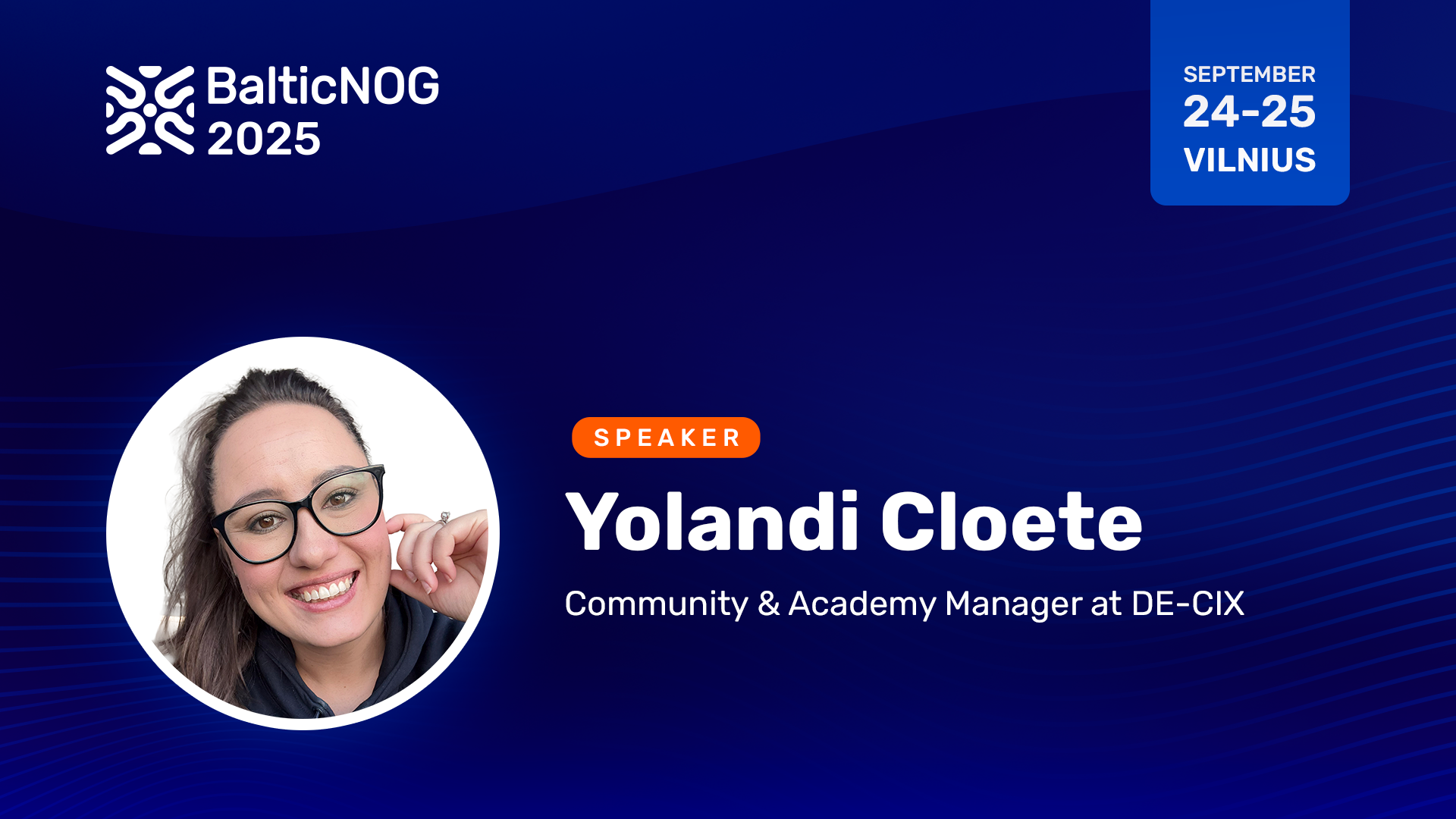Yolandi Cloete — Securing the Backbone: Defending Peering Networks Against DDoS, Blackholing Risks, and VPN Threats
With nearly a decade of experience in peering and interconnection, Yolandi Cloete has built her career at the crossroads of data centers, cloud, and internet exchange ecosystems. Today, she leads initiatives at the Global Interconnection Academy, focusing on education, strategic partnerships, and community growth across the global internet ecosystem. She is an active member of several industry forums and a passionate advocate for mentorship, collaboration, and technical excellence.
At BalticNOG 2025, Yolandi will bring this expertise to the stage with her talk, “Securing the Backbone: Defending Peering Networks Against DDoS, Blackholing Risks, and VPN Threats.”
The Rising Threat of DDoS in Peering Environments
Peering networks are designed to ensure efficient, low-latency data exchange. However, they are increasingly under siege from Distributed Denial of Service (DDoS) attacks. The scale of attacks is staggering: in the first half of 2025 alone, more than 27 million DDoS attacks were recorded globally, surpassing all of 2024. These attacks are larger and more sophisticated, leveraging AI-generated traffic, IPv6 vectors, and even targeting BGP sessions.
Yolandi will explore how these attacks disrupt the targeted networks and create collateral damage for peers sharing the same infrastructure. She will discuss layered defense strategies, the importance of upstream collaboration, and the financial and reputational risks that downtime brings to businesses.
Blackholing: From Blunt Tool to Precision Defense
Blackholing — the practice of dropping traffic to protect against overload — has long been a defense mechanism in peering. Traditionally, it came with a heavy price: legitimate traffic was sacrificed along with malicious packets. Today, advanced blackholing techniques are evolving, offering far greater precision.
Yolandi will outline how automation, telemetry, and protocol-level filtering can reduce collateral damage, making blackholing a sharper, more effective tool. By comparing traditional and advanced approaches, she will show how network operators can mitigate attacks without crippling their own services or harming trust with customers.
VPNs: The Hidden Weak Link
Virtual Private Networks (VPNs) are meant to secure data flows between peers, yet they often become weak points in the chain. Misconfigurations, outdated encryption, and unprotected endpoints leave openings for attackers. High-profile cases, such as ransomware infiltrations through compromised VPN credentials, have shown how costly these vulnerabilities can be.
In her session, Yolandi will stress the importance of strong encryption standards, multi-factor authentication, and rigorous monitoring of VPN endpoints. She will also connect these risks to broader compliance concerns, underscoring how failing to secure VPNs can lead to breaches and regulatory and financial penalties.
Why You Shouldn’t Miss This Talk
In today’s internet, peering networks are more than just technical infrastructure — they are the arteries of the global digital economy. Defending these interconnection points has become mission-critical for uptime, business continuity, trust, and regional resilience as threats evolve.
Yolandi’s session at BalticNOG 2025 will go beyond theory, offering practical insights on how to adapt defenses, collaborate across ecosystems, and prepare for tomorrow’s attack landscape. Whether you’re an operator, engineer, or policymaker, her talk will help you see peering security not as a niche concern, but as a core responsibility in keeping the internet open, reliable, and secure.
📅 When: 24-25 September 2025
📍 Where: BalticNOG 2025, Litexpo, Vilnius, Lithuania

